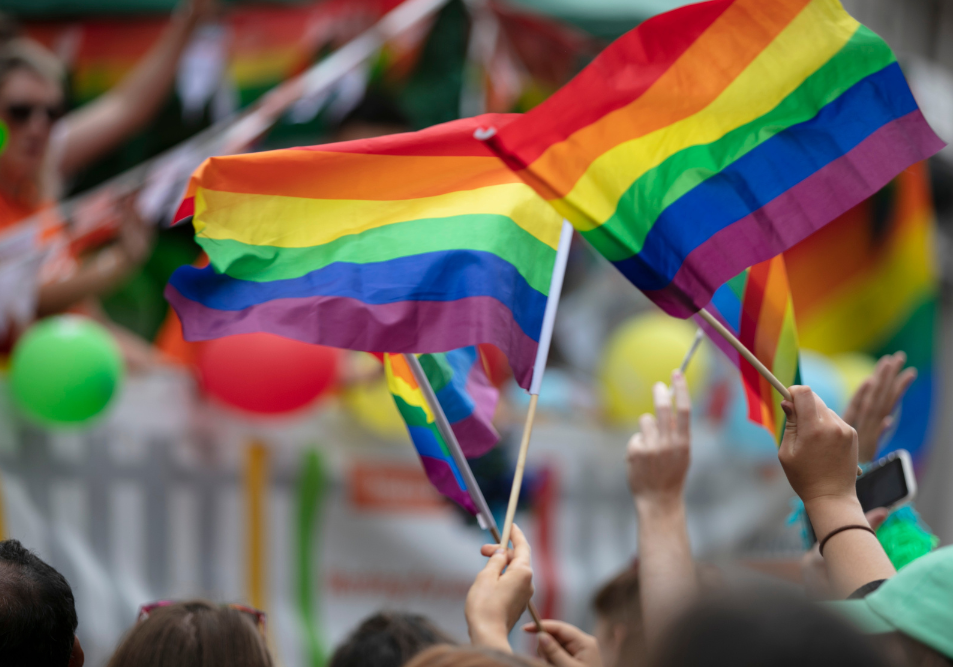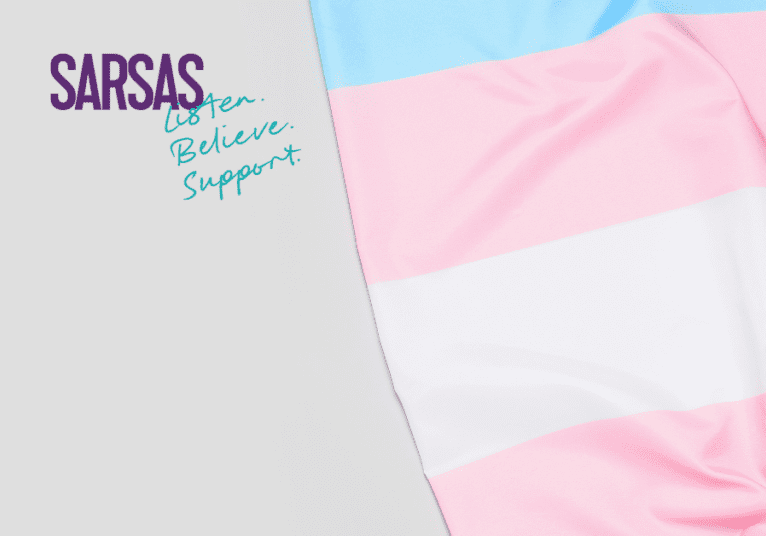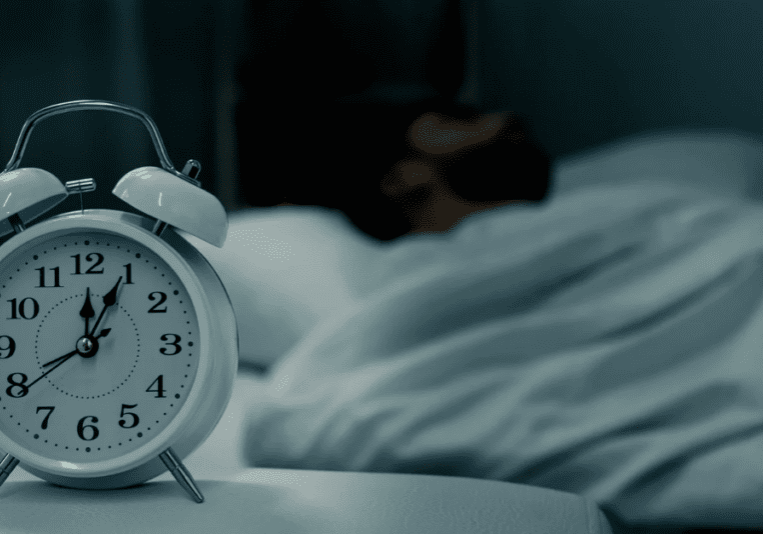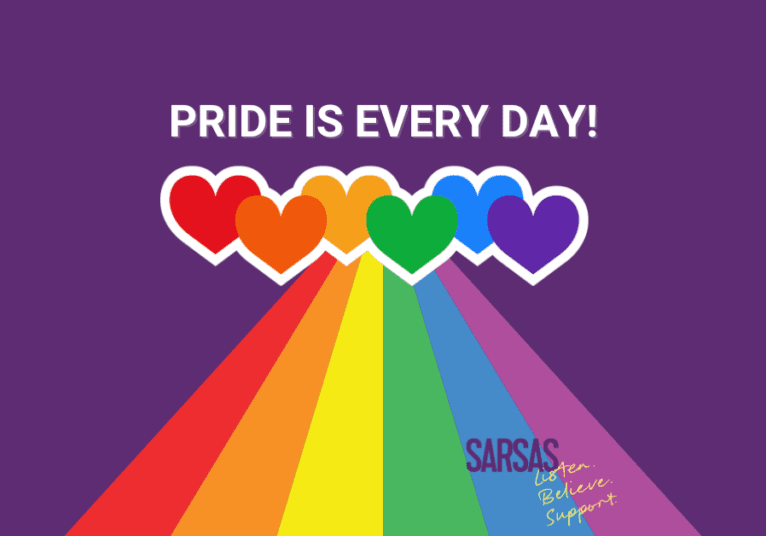
Pride, sexual violence and the LGBTQ community
For Pride Month, one of our awesome counsellors talks about the history of Pride, the specific issues faced by LGBTQ+ victim-survivors and the importance of not making assumptions.
TW: Sexual Violence
Happy Pride Month to all SARSAS clients and supporters! As well as an important celebration of all LGBTQ+ people, Pride is also a protest, started by a black transgender woman named Marsha P. Johnson in the 1969 Stonewall riots and sparking the LGBTQ+ rights movement that continues to fight for equality and inclusion today.
Over half a century later, attitudes are changing, but we still live in a world where it is illegal to be gay in 70 countries, with the death penalty in 12, and whilst we’ve had equal marriage in the UK since 2014, many LGBTQ+ people grew up under the shadow of Section 28 where it was illegal to even mention or acknowledge being gay in schools until 2003, and still face widespread prejudice, discrimination and barriers to accessing support.
For LGBTQ+ survivors of sexual violence, these barriers can include negative experiences from professionals including the police causing mistrust, fear of being misunderstood, judged and stereotyped. There is a lack of both specialist services and research around specific needs of the community although the National Intimate Partner and Sexual Violence Survey 2010 highlights that nearly half of bisexual women, 1 in 8 lesbian women and 1 in 6 heterosexual women have experienced rape at some point in their lifetime. Many LGBTQ+ people have also experienced a lack of support, ostracisation and outright rejection from family, friends and community, isolation, trauma and shaming, which can be internalised.
As a group we experience higher rates of mental health issues including self-harm, suicide, drug and alcohol use, health inequalities, homelessness, and, especially for LBTQ women, poverty. Some have experienced ‘corrective rape’, so called ‘honour-based violence’, forced marriage, hate crime and ‘conversion therapy’ amounting to torture, on top of minority stress in a society where you can feel invisible through lack of representation in the mainstream.
Domestic abuse within LGBTQ+ interpersonal relationships can have specific patterns where someone’s sexual orientation and gender identity can be used as an instrument of power and control by an abusive partner e.g. by threatening them with being ‘outed’ and telling them that they will not be believed and are betraying the LGBTQ+ community, where speaking up may mean losing support and risking further violence. And when there are further barriers as a result of multiple oppressions intersecting e.g. around age, race and ethnicity, disability, and faith or belief, survivors can be even further at risk.
Widespread myths in society, eg heteronormative assumptions about relationships and dynamics, beliefs that women cannot be perpetrators of sexual violence, that sex workers cannot be raped, that trans women are not ‘real women’ but men trying to infiltrate women only services to facilitate offending, that sexuality and gender are binary and people are either straight or gay, male or female, and not recognised as bisexual, pansexual, intersex or non-binary (and other identities), can affect whether LGBTQ+ survivors feel they will be taken seriously and welcome in services and get the help they need and deserve.
At SARSAS we understand the importance of reaching out to the LGBTQ+ community and providing an inclusive service where survivors know they will be treated with respect, understanding and sensitivity. That we will not make assumptions, e.g. around gender, sexual orientation, personal relationships, lifestyle, pronouns, and will keep personal information confidential. That we will listen, believe, and continue to work on improving services including having a diverse team of staff and volunteers who are trained and competent to serve the LGBTQ+ community. We see you, we support you, and we are here for you, not just during Pride month but every day.
The latest from our news and blogs

Trans, Non-Binary, and Intersex (TNBI) Support Group
Coming together in a confidential space to support each other and identify ways to move forward after rape & sexual abuse.




